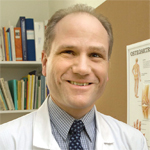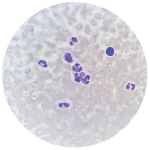
Our goal: Truly personalized treatment for each patient
Konstantin Faraktinov/shutterstock.com
SAN FRANCISCO—Considerable progress has been made in the treatment and management of rheumatoid arthritis (RA) in the past two decades, with rheumatologists now able to manage the effects of this chronic, debilitating condition for most of their patients, according to Ronald van Vollenhoven, MD, director of the Amsterdam Rheumatology and Immunology Center (ARC) in the Netherlands.
“We have come a long way in RA treatment, but not to the place where we can be complacent,” he noted in a presentation at the California Rheumatology Alliance 2016 Medical & Scientific Meeting in May. “We try to treat symptoms and prevent progression to functional loss. Rarely today does an RA patient do outright badly.” More effective treatments in the future may come from combinations of biologic treatments, induction-maintenance strategies and the eventual goal of personalized treatment for every patient.
Dr. van Vollenhoven introduced his discussion of advances in RA treatment with a brief history of clinical research, distinguishing between pharmacy industry-initiated and clinical investigator-initiated clinical trials. He concluded with the promise of the “learning healthcare environment,” an idealized state that will someday collect data, analyze it and feed it back to clinicians. Such an approach, he said, can build in randomized studies by frontline clinicians, informing patients up front and simplifying the clinical trial enrollment process. Rheumatologists collaborating on the care they provide to patients will be able to synthesize such research in new and different ways.

Dr. van Vollenhoven
Dr. van Vollenhoven recently moved from Karolinska University Hospital in Solna, Sweden, back to his native Netherlands to head the Rheumatology and Immunology Center, a research collaboration between Vrije Universiteit Medical Center and the Academic Medical Center of the Universiteit van Amsterdam, which are moving toward a full merger by next January, combined with the community-based rheumatologists of the Reade Foundation, also in Amsterdam.
The new ARC collaborative in Amsterdam has pursued concrete steps for bringing its clinicians together in research and education, he explained in a follow-up interview with The Rheumatologist at the conference. “We are striving to create a true learning healthcare environment where we learn from all the clinical decisions that are being made daily by physicians, anyway. As every doctor knows, every day of their working life, physicians make treatment decisions that aren’t clearly right or wrong, black or white. For many decisions, you have two reasonable alternatives, but you have to choose one because you have to do something,” he explained. “These kinds of choices can be used to inform the future—to find out what therapeutic choices really have advantages or disadvantages and for which patients.”
One Dose Doesn’t Fit All Patients
Clearly, one dose does not fit all with RA, and there is a balancing act involving treatment advances, Dr. van Vollenhoven said. “When we see research comparing traditional treatments, such as methotrexate or triple DMARD (disease-modifying anti-rheumatic drug) therapy with biologic therapies for newly diagnosed RA patients, or even for those who have a genetic disposition and are starting to show symptoms, this is a big choice for us. Do you stick with the traditional therapies—safe, easy and less expensive? If the studies tell us that some do well on traditional medications, but a greater percentage gets better results on the new treatments, we need to weigh our options.”

